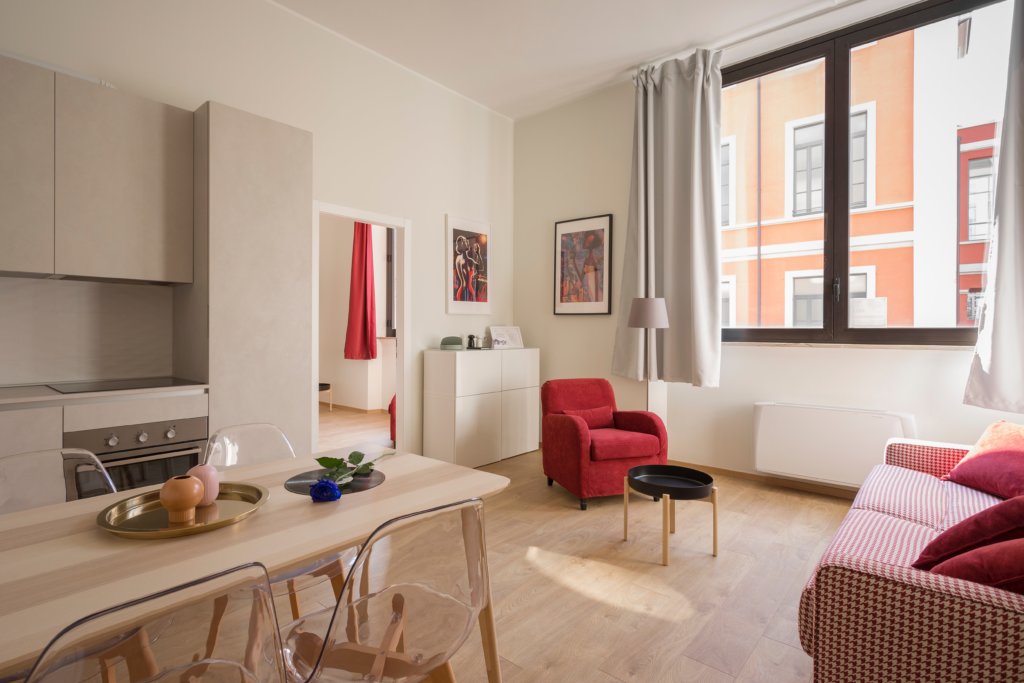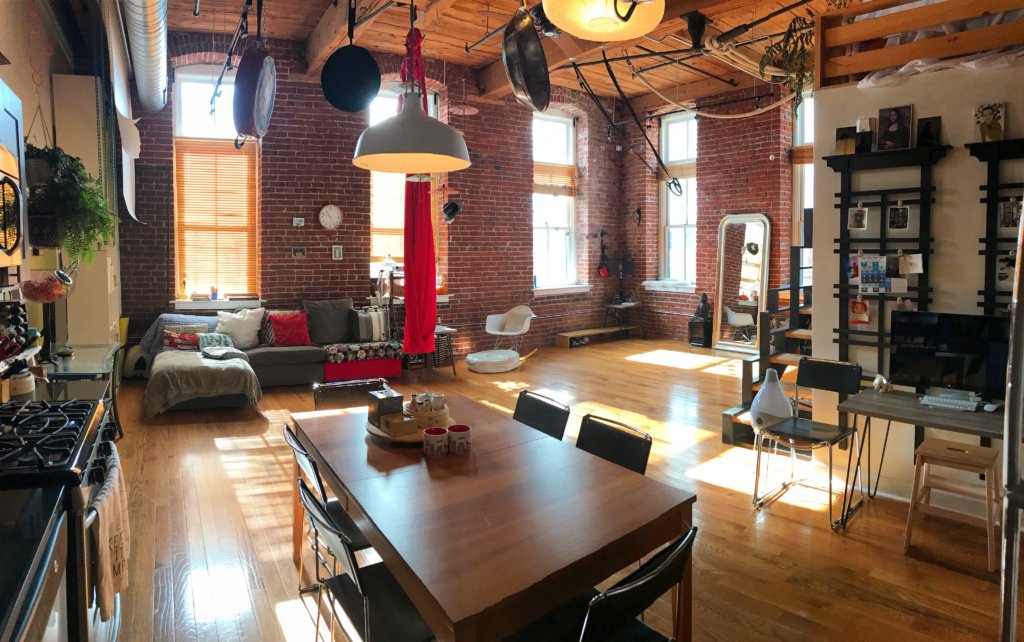Owning a home has long been considered part of the “American Dream,” but is it always the best option?
With average home prices up over 13% from last year and expected to be up another 15% next year, homeownership has become increasingly out of reach for many Americans, especially millennials.
Limited inventory, homes selling without contingencies like inspections and a demand for more space (especially for those who work from home) have all been factors that have led to all-time increases in prices. But, particularly in a record-breaking sellers’ market, owning a home is not the best option for everyone.

Here are some of the most important advantages of renting over buying.
12 Benefits of Renting
- Increased flexibility. Selling a home is a big hassle, and depending on how long you live in your home and the market conditions, you can end up losing money on the sale due to closing costs and real estate fees, in addition to taxes and potential HOA fees you have to pay as a homeowner. On the other hand, most rental terms don’t last longer than a year, and some allow you to buy out the lease or pay a penalty for leaving early if you decide to move out. Renting allows you to pick up and move with minimal notice, whereas owning a home means you’re more committed to staying long-term because the selling and buying process is longer and more expensive.
- No responsibility for maintenance. Of course, you can’t trash your apartment and expect it to be fixed for you, but if anything breaks or needs major repairs, such as appliances, windows, the roof, etc., you’re not responsible for paying for it or fixing it yourself. This is a huge benefit that many first-time homeowners don’t consider. Especially if you’re buying an older home, there can be surprises and issues that come up that may need to be addressed immediately and can cost you thousands of dollars. You also then have to deal with the hassle of finding a reliable contractor (which many homeowners will tell you is easier said than done), scheduling the work, and living in a potential construction zone in the meantime. But if your dishwasher breaks in your apartment, you can just call your apartment community and get it fixed quickly at no additional cost to you. And, if major repairs are necessary in an apartment or will be time-consuming, many communities will just let you move to a new unit in the meantime.
- You can keep your weekends free. Owning a home requires a lot of ongoing manual labor and upkeep – cutting the lawn, gardening, snow removal, gutter cleaning and plenty more. When you rent an apartment, these things are usually not your responsibility. You’ll never have to worry about keeping the sidewalks clear to avoid slips or your neighbors complaining about your grass being too high, so you’ll be able to spend your free time doing whatever makes you happy instead of general home upkeep. And you’ll still get to take advantage of the grounds and amenities your apartment community offers.

When you rent an apartment, you’re not responsible for upkeep of the grounds, but you get to take advantage of all of the amenities. - The ability to try out different neighborhoods before buying. Even if you know the city you want to live in, it can be useful to test out different neighborhoods to get a better feel for exactly where you’d like to be. What’s within walking distance? How close is it to work? Do you like your neighbors? If you’re not sure if you want to live somewhere long term, it’s smart to figure out these factors by renting for a while rather than committing to a house too soon.
- Minimal drama with neighbors. When you own a home and are surrounded by other homeowners, people tend to be very particular about their streets and neighborhoods. Whether you’re dealing with a dispute over landscaping, parking, property boundaries or loud pets, inconsiderate or overly particular neighbors can make life very difficult. And when you own your home, there’s no escape at the end of your lease — you either have to take the large, expensive and time-consuming step of selling your home and moving elsewhere, or live with the nuisance.
- It’s easier to get a roommate to save money. When you’re renting an apartment, it’s relatively simple to find a roommate and commit to living together, which is great for saving money because you can split costs like rent and utilities. There’s relative safety in it because if your roommate’s name is also on the lease, they’re less likely to flake on rent since they can be held responsible for their share of rent. And when the lease ends, you can easily end the roommate relationship if you choose and move into a smaller place on your own. However, it’s a lot riskier to buy a house that’s more expensive than you can afford and try to find a roommate to help split costs. Not only would you be taking on more risk, you’d be potentially committing to needing a roommate for the long-term and being beholden to them to help with the high costs of homeownership. Generally, if you need to split costs with someone in order to afford where you’re living, renting makes more sense.

It’s relatively easy to find a roommate when you rent an apartment, which allows you to share costs and responsibilities. - You can lock up and leave whenever you want. If you’re someone who enjoys traveling, the ability to lock your apartment door and just leave without worrying about security or maintenance while you’re gone is a huge benefit. When you own a home, you have to worry about security threats from people who can tell you’re not home (such as no car in the driveway, un-mowed grass, a pathway not cleared, mail piling up, lights off, etc.). You also have to worry about keeping your house presentable when you’re gone and make sure someone is cutting the grass or shoveling snow and potentially even pay someone to house-sit. None of these things are necessary when you rent an apartment. Most people have no idea whether you’re home or not, and there’s nothing to maintain on an ongoing basis, so you can leave for as long as you’d like. Particularly with more jobs offering remote opportunities, it’s a real benefit to be able to pick up and go to the beach for a couple weeks without worrying about your home.
- More career flexibility. When you’re not tied to a mortgage, you’re free to chase career opportunities in new places without having to sell your home, potentially at a loss. You can pick up and leave your city more easily when you’re renting an apartment, and sign a new lease and move into an apartment much quicker than you could sell your own house and find and buy a new one. This can mean greater financial opportunities as well as more satisfying and interesting job choices.
- You’ll spend less money on furnishings and move-in. The cost of furnishing an entire house can be tens of thousands of dollars. If you don’t have a lot of money saved, it can be difficult to purchase all of the furniture upfront. While an apartment can cost a bit to furnish, they’re generally smaller than homes, and the goal is usually to maximize space with minimal furniture, rather than fill it. Renting an apartment can help you avoid acquiring too much “extra” stuff and only buy what you really need. Plus, you won’t have to make (and store) the large homeowner purchases like a lawnmower, snowblower, and other large lawn/home tools.

Renting an apartment will encourage you to make the most of your space and purchase less furniture than if you were trying to fill an entire house. [Photo by Keren Fedida on Unsplash] - Renters’ insurance is much less expensive than homeowners’ insurance. Renters’ insurance can cost as little as $125 per year for a sufficient policy. In comparison, a quality homeowners’ insurance policy can cost thousands of dollars. Add in flood insurance or other coverage, and you’re talking several hundred dollars more.
- No property taxes. With the increase in home prices across the country, more homeowners are seeing their tax bills rise as well. An average house in a mid-sized city will likely cost you several thousand dollars in property taxes each year. But you won’t pay any property taxes as a renter.
- Some utilities may be covered in your rent. When you rent an apartment, often things like gas, water, trash, pest control and potentially even things like cable/internet are built into your bill. However, when you own a home, none of these are built into your mortgage. This means you have to budget for them, in addition to all of the other costs you’re paying for the house (mortgage with interest, taxes, and insurance). And these extra fees can add up, especially when you’re using these utilities in a larger space compared to an apartment (such as heating a larger home in Buffalo in the winter).

 Fair Housing Notice
Fair Housing Notice 


